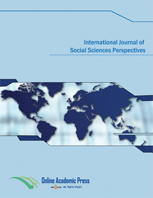Digital Economy Barriers to Trade Regulation Status, Challenges, and China's Response
DOI:
https://doi.org/10.33094/7.2017.2021.82.41.49Keywords:
Digital barriers, Digital economy, data flow, Privacy data, Regional trade agreements.Abstract
At present, the WTO's multilateral trading system faces the acute challenge of adapting to the digital and commercial economies' rapid evolution. The recent regional trade agreements embody the corresponding achievements of the Comprehensive and Progressive Agreement for Trans-Pacific Partnership (CPTPP), Economic Partnership Agreement (EPA), and the United States Mexico Canada Agreement (USMCA) in facilitating the free flow of data and regulating digital barriers to trade. The General Data Protection Regulation (GDPR) has also developed several new norms for promoting free data flow and protecting personal data privacy. The new regional trade agreements fulfil the digital trade threshold, prohibit delocalization by the data center and establish organized frameworks for cross-border data flow and personal privacy protection. In the negotiations on trade services agreements, China should focus on implementing a new management structure, speeding up domestic legislation and legislative reforms, and establishing a legal framework that promotes the free flow of data, fair competition, and personal information among corporations.




